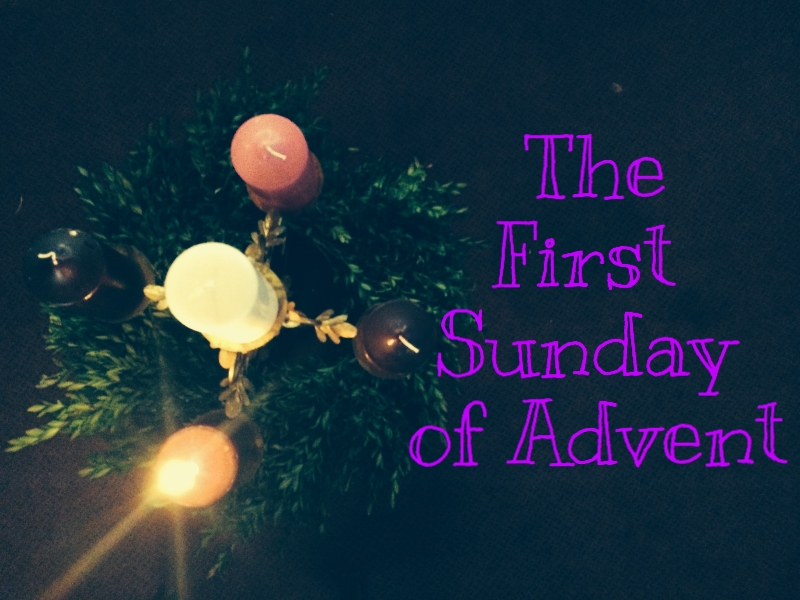Isaiah 64:1-9
Psalm 80:1-7, 17-19
1 Corinthians 1:1-9
Mark 13:24-37
Today is the first Sunday of Advent. That means it’s also is also the first Sunday of a new liturgical year for the Church. The Advent season includes the four Sundays that precede Christmas. It is a time of preparation for the coming of the Lord. In this season, we recall two central elements of our faith: the final coming of the Lord in glory and the incarnation of the Lord in the birth of Jesus. We tend to think of one as the apocalyptical end of the world, and the other as a pastoral vision of the beginning of something new. And yet both the birth of Christ (what we celebrate at Christmas) and the coming Day of the Lord (what we anticipate in Advent) are part of both seasons.
We remember the promise with hope that God will come to
Right all the wrongs,
To wipe every tear from every eye,
To feed the hungry,
Bring justice to those that are thirsty,
Peace to all God’s children,
And wipe away death.
Why is it that we often overlook the apocalyptic to focus upon the picturesque? Don’t we need the judgment, justice and joy that God’s completing of creation is promised to bring? A look at our world today makes that evident (of course not necessarily any more than any other day). Eschatological is the theological word that we employ to express this tension between what is now, and what God has promised to be. It articulates the active hope that we have that all things are being made new, that where we put a period, God has placed a comma. It’s why in Mark 13 Jesus talks about staying “awake” or “alert” or “alive” – remembering to what spirit of life we are connected as our source.
My intent with the daily Advent devotionals this year is to engage a conversation – that involves me and you the reader, but also more voices. Our principal problems in our society today are related to the fact that we don’t talk with each other, or listen to each other. We all have hopes. And we seem to view those hopes as in competition, as limited in terms of what can be realized. This leads to a forum of shouting-louder-than-the-other-guy rhetoric and castigating calls of conversion to “our” point of view. We move about in a system of winners and vanquished, of self-righteous, and excluded, based on the false doctrine of the myth of scarcity. What we need first is dialogue. And then an invitation to participatory, forbearing action. I’m reminded of one of my heroes, Dorothy Day, who died 34 years ago yesterday who said, “Our problems stem from our acceptance of this filthy, rotten system.”
How do you long for that justice, deliverance and completing joy? Where does such hope draw your attention these days? What do you think we should be talking about, as the people who are called to active, participatory, join-in-and-get-your-elbows-dirty hope?
